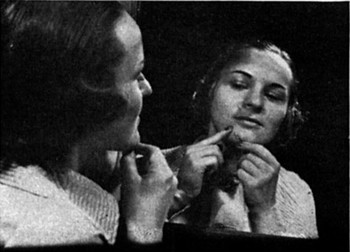How to Get Rid of Acne
Acne is the most common skin disease in the USA. Over 60 million Americans have acne, and over 20 million have acne that’s so bad it leaves scars. And only 11% of acne sufferers seek medical help. 85% of teenagers suffer from acne at some point, and 20% of all adults also suffer from acne.
Acne can have serious effects on a person’s mental health. Acne is can cause the following symptoms: poor self-esteem, poor self-confidence, depression, anger, frustration, and social withdrawal. Fortunately, acne is completely treatable. This article deals with learning how to get rid of acne once and for all.
What Causes Acne
Acne is an inflammation of the sebaceous gland, the gland which produces sebum. The sebaceous gland is what keeps a person’s skin and hair from drying out. During puberty, hormones cause the sebaceous glands to become more active, but for most people, this slows down at age 20.
Factors that can contribute to acne include:
Hormonal changes – Puberty and the onset of menstrual cycles usually herald the arrival of acne.
Genetics – If your parents had acne, chances are you will have it, too.
Stress – Too much stress in your life can cause all sorts of problems for your body. When you get stressed out, your skin can break out in rashes, hives, or even acne.
Blocked follicles – Dead skin cells and oil can block pores, which is one of the most common instigators of acne.
Medications – Certain medications that contain lithium, halogens, or barbiturates can lead to an acne outbreak.
Steroids – Steroids boost certain hormonal levels. So since hormones (such as puberty) can cause acne, it’s only natural that steroid use would cause it, too.
Do It Yourself Ways to Get Rid of Acne

How to Get Rid of Acne
- Stop popping the zits. Every time you pop a zit, you damage your skin below the surface. The bacteria that causes zits then spreads through the damaged areas below the surface, causing more zits. And every time you pop a zit, your risk leaving a scar.
- Stop using oil-based make-up and beauty products. This includes some shampoos, facial crèmes, and cleansers. One of the main causes of acne is the build-up of oil on your skin. Oil clogs up your pores and causes infection.
- Don’t use harsh soaps or “exfoliaters” on your face as they can damage your skin, causing it to dry out quickly. When this happens, your pores work overtime to create enough oil to treat the dry skin. Then you are back at square one with too much oil. Only use an oil-free facial soap with salicylic acid to clean the pores.
- Avoid touching your face. Your hands contain a lot of oils along with bacteria. If you have acne, bacteria from your hands could worsen the problem.
- Stay hydrated. Drinking a healthy amount of water every day helps to keep your skin moisturized. When you get dehydrated, your skin becomes dry which then causes dead skin cells. These dead cells block pores, causing an acne infection.
- Change your pillow case. A dirty pillowcase is full of oils from your hair.
- Use a dermatologist approved acne fighting lotion. Your local pharmacy offers several brands of lotions and acne medications. Look for the stuff that contains salicylic acid, sulfur, or resorcinol.
- Get rid of the stress in your life. Stress can cause acne. You can wash your face and clean it every day but if your life is still stressful, you might not see much change in your condition.
Medical Ways to Get Rid of Acne
Severe acne requires medical help. Dermatologists can prescribe acne medications that you can’t get over the counter. One such medication is an antibiotic lotion that contains the ingredients retinoic acid and adapalene, which are both vitamin E extracts. These ingredients help by causing your body’s dead skin cells to fall off instead of clogging up pores.
Another prescription medication is an antibiotic in the form of a pill. Oral antibiotics are potent and can control the spread of the bacterial infection.
UV radiation has had some success is treating acne. Also known as the “acne light treatment”, UV radiation treatment is offered by many tanning salons and dermatologists’ offices.
Some patients can go on restrictive acne diets to reduce the amount of oils and harmful chemicals in their body. The diet method is usually conducted along with medical treatment. A healthier diet means healthier skin.
